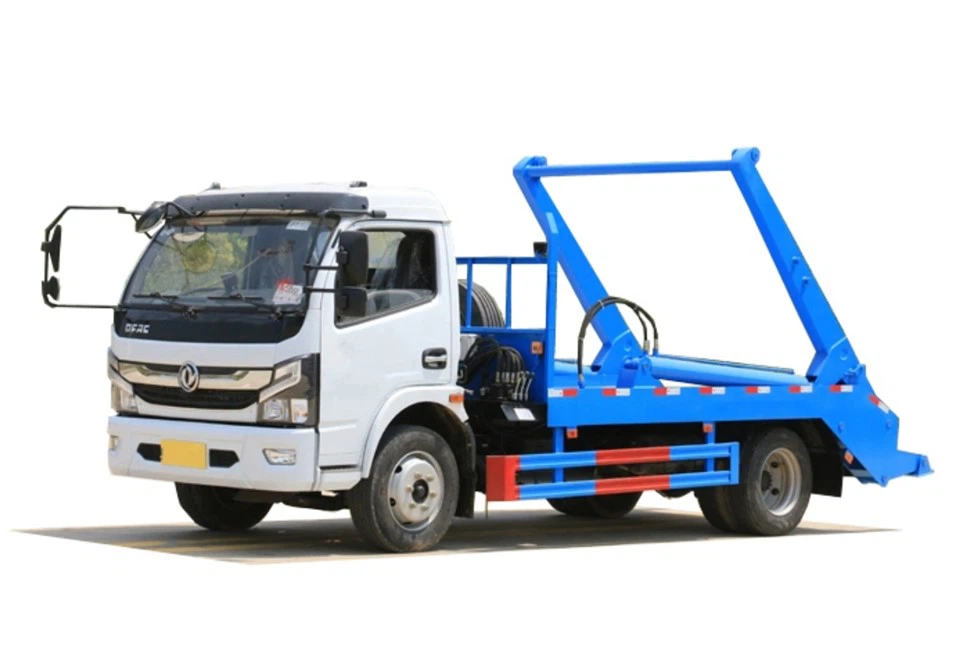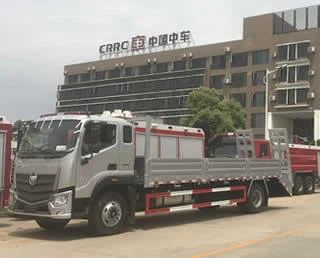Understanding Jet Fuel Tankers: A Comprehensive Guide

Jet fuel tankers play a vital role in the aviation industry, ensuring that aircraft receive the necessary fuel for efficient operation. This article delves into various aspects of jet fuel tankers, including their types, operational mechanisms, safety measures, and their significance in global logistics. Whether you are an aviation enthusiast, a professional in the industry, or simply curious, this guide will provide you with comprehensive insights.
What is a Jet Fuel Tanker?
A jet fuel tanker is a specialized vehicle designed to transport aviation fuel to airports and facilities where aircraft are fueled. These tankers ensure that fuel is delivered safely and efficiently to support flight operations. They come in various sizes and configurations, catering to different operational needs.
Types of Jet Fuel Tankers
Jet fuel tankers can be classified into several categories based on their design and functionality:
1. Road Tankers
Road tankers are equipped with large fuel tanks mounted on trucks specifically designed for transporting aviation fuel over land. These tankers can carry significant quantities of fuel, making them suitable for long-distance supply chains.
2. Rail Tankers
Rail tankers transport fuel via rail networks. This method is often used for bulk transport and is considered cost-effective for long-distance deliveries.
3. Marine Tankers
Marine tankers are large ships designed to transport jet fuel across vast distances, particularly between countries or continents. These vessels are equipped to handle large volumes of fuel and can offload their cargo at ports with specialized facilities.
4. In-Flight Refueling Tankers
These specialized aircraft are designed to refuel military and commercial aircraft mid-flight. While they are not traditional tankers, they play a crucial role in ensuring aircraft can operate over long distances without landing.
How Jet Fuel Tankers Operate
The operation of jet fuel tankers can vary significantly depending on the type, but the basic principles remain constant.
Loading and Unloading Fuel
Jet fuel tankers are usually loaded at refineries or fuel distribution centers. The loading process generally involves:
- Using pumps to transfer fuel from storage tanks to the tanker.
- Monitoring the loading process to prevent spills and ensure proper weight distribution.
Unloading at airports typically includes the following steps:
- Connecting the tanker to ground fuel storage systems via specialized hoses and couplings.
- Using built-in pumps to transfer fuel into the storage tanks.
Fuel Dispensing to Aircraft
Once the jet fuel tanker’s cargo reaches the airport, it is utilized to fuel aircraft. The dispensing mechanism involves:
- Connecting the fuel hose from the tanker to the aircraft’s refueling point.
- Carefully monitoring fuel transfer to ensure the aircraft receives the correct quantity of fuel.
Safety Considerations for Jet Fuel Tankers
Safety is paramount in the operation of jet fuel tankers due to the flammable nature of aviation fuel.
Regulatory Compliance
Jet fuel transporters must adhere to strict regulations set by aviation and transportation authorities. Compliance includes:
- Regular inspections of the tanker and equipment.
- Training personnel in emergency response and fuel handling procedures.

Preventing Spills and Leaks
Tankers are equipped with features to minimize the risk of spills or leaks during transport:
- Double-walled tanks to contain leaks.
- Automatic systems to detect overfills and leaks.

Emergency Response Measures
In case of an accident, following protocols is crucial for safety. Tankers typically carry emergency response kits, including:
- Fire extinguishers, absorbent pads, and containment booms.
- Contact information for emergency services and spill response teams.
The Importance of Jet Fuel Tankers in Aviation
Jet fuel tankers represent a vital component of the aviation supply chain.
Meeting Demand
The aviation industry requires a constant supply of jet fuel to operate effectively. Jet fuel tankers help meet this demand by transporting fuel from refineries to airports where it is needed.
Global Logistics
Jet fuel requires specialized logistics to ensure fuel is delivered on time. Tankers contribute to a seamless supply chain that supports air travel and cargo operations worldwide.
| Type of Tanker | Capacity (Gallons) | Key Use |
|---|---|---|
| Road Tanker | 5,000 – 12,000 | Local airport fueling |
| Rail Tanker | 25,000 – 30,000 | Bulk transport |
| Marine Tanker | 1,000,000+ | International transport |
Technology in Jet Fuel Tankers
Advancements in technology play a crucial role in enhancing the efficiency and safety of jet fuel transport.
Fuel Management Systems
Modern tankers are equipped with sophisticated fuel management systems that track fuel levels, manage consumption, and monitor transfers in real-time.
Telematics and GPS Tracking
Telematics systems allow companies to monitor the location and condition of their tankers, which helps optimize routes and reduce the risk of delays.
Automation and Remote Monitoring
Automation technology can streamline loading and unloading processes, while remote monitoring allows operators to manage operations from afar, increasing efficiency and reducing human error.
Environmental Considerations
The impact of jet fuel tankers on the environment is a growing concern.
Reducing Emissions
Companies are increasingly focusing on reducing the carbon footprint associated with jet fuel transportation. Strategies include:
- Using fuel-efficient vehicles.
- Implementing better route planning to minimize travel distance.
Alternative Fuels and Innovations
The aviation industry is exploring sustainable alternatives, including biofuels. Jet fuel tankers are adapting to accommodate these new fuel types.
Future Trends in Jet Fuel Tanker Operations
The future of jet fuel tankers is poised for evolution with several emerging trends.

Increased Automation
Automation is likely to play an essential role in improving operational efficiency, from automated refueling systems to autonomous tankers.
Smart Tankers
The integration of IoT technology in tankers may lead to ‘smart tankers’ capable of monitoring and optimizing their own performance, further improving safety and efficiency.
Global Supply Chain Innovations
With increasing global demand for air travel, supply chain innovations will be crucial in ensuring fuel is available where and when it is needed.
Challenges Faced by Jet Fuel Tankers
While jet fuel tankers are essential for aviation, they face several challenges.
Regulatory Changes
As regulations evolve due to environmental concerns, tankers must adapt to comply with new standards.
Market Fluctuations
The fluctuation in fuel prices impacts profitability for transport companies, necessitating refined strategies for cost management.
Technological Adaptation
Staying updated with rapid technological changes can be a challenge for companies in the tanker industry. Investment in new technology is essential for maintaining competitive advantage.
Frequently Asked Questions (FAQs)
1. What is the typical capacity of a jet fuel tanker?
The capacity of a jet fuel tanker varies widely, with road tankers typically capable of carrying 5,000 to 12,000 gallons, while marine tankers can hold over a million gallons.
2. What safety measures are in place for jet fuel tankers?
Safety measures include double-walled tanks to prevent leaks, emergency response kits, and adherence to governmental regulations and guidelines.
3. How are jet fuel tankers regulated?
Jet fuel tankers are subject to regulations from aviation authorities and transport bodies, requiring regular inspections, employee training, and compliance with environmental standards.
4. What technologies are transforming jet fuel tanker operations?
Technologies such as fuel management systems, telematics, GPS tracking, automation, and IoT are revolutionizing jet fuel tanker operations, increasing efficiency and safety.
5. Are there alternative fuels for aviation, and how do they impact tanker operations?
Yes, alternative fuels such as biofuels are being explored in the aviation sector. Jet fuel tankers are adapting to support the transportation of these fuels, impacting future operations.
6. What are the environmental impacts of jet fuel tankers?
Jet fuel tankers contribute to emissions and environmental concerns, leading companies to adopt strategies for reducing their carbon footprint and exploring sustainable fuel alternatives.
